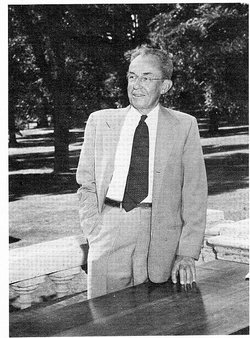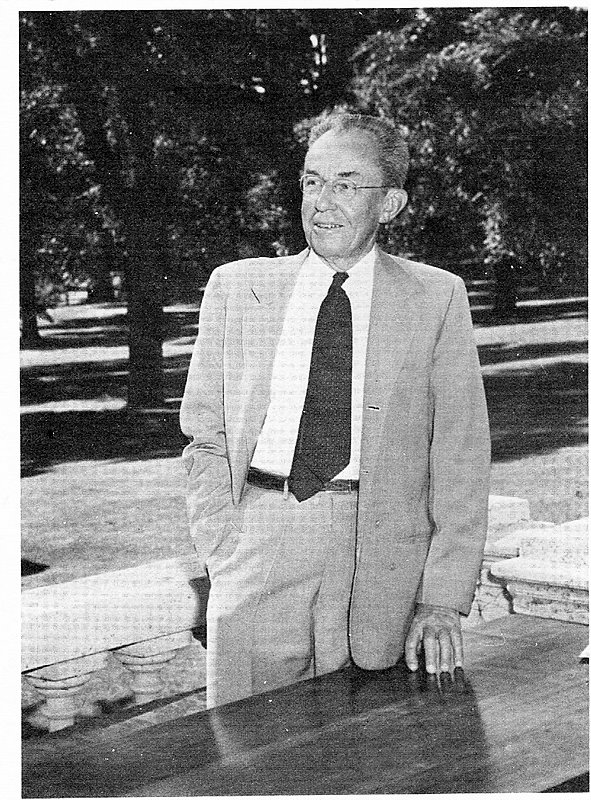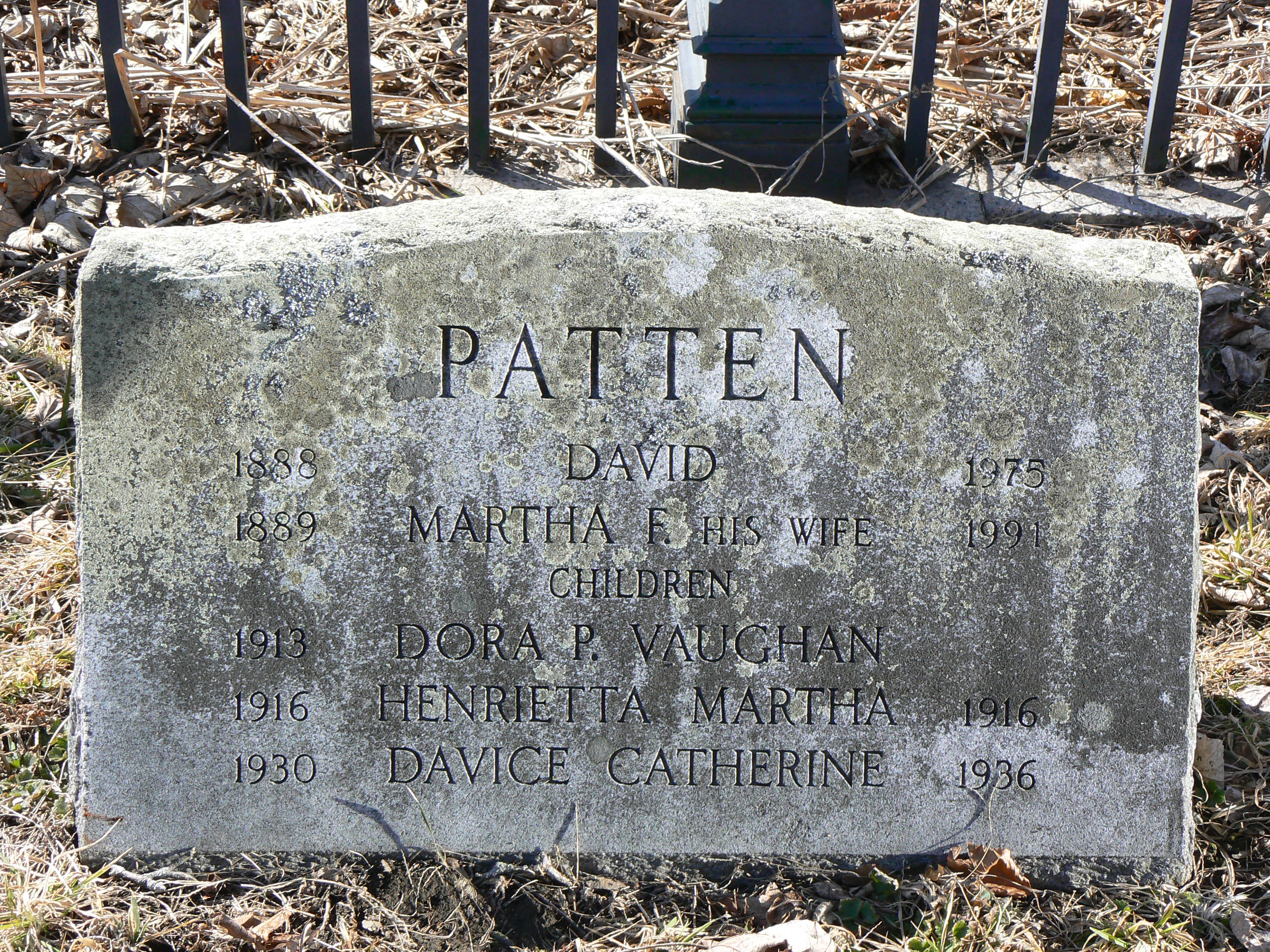David Patten was born in Boston, the son of Frederick Marcy and Dora Josephine Wilbour Patten. Though Bostonian by birth, David spent school vacations and several winters at his grandfather's 260-acre farm in Little Compton, Rhode Island.
During Patten's childhood in the late 1890s, Prospect Hill Farm was the largest poultry farm in the United States. Patten's grandfather, Isaac Champlin Wilbour (1831 – 1899) was instrumental in the selective breeding - and eventually coined the name - of the Rhode Island Red chicken. Patten's great-great-grandfather, Isaac Wilbour (1763 – 1837) was Governor of Rhode Island, Representative to Congress, Speaker of the R.I. House of Representatives and Chief Justice of the R.I. Supreme Court.
He attended Wesleyan University in 1907 and 1908 but left in his second year to take up farming and writing in Little Compton.
David Patten was employed as a newspaperman, journalist and columnist by the Providence (R.I.) Journal-Bulletin for 35 years, retiring as Managing Editor of both newspapers in 1953.
From 1947 until after his retirement in 1953, Mr. Patten wrote some 300 columns under the banner "In Perspective," the vast majority devoted to reminiscences of his life and adventures in Little Compton and Sakonnet – or 'S'cunnet' as he preferred to call it.
His daughter and grandson observed that he "possessed the judgment of a top-notch newspaper editor, the sensitivity of a poet, an abiding interest in people, a cunning sense of humor - and the power to pull it all together."
Mr. Patten wrote a semi-autobiographical book on his childhood in S'cunnet, titled "Three Sides to the Sea" (New York & Toronto: Rinehart & Company, Inc., 1956).
Of a childhood shaped by experiences in S'cunnet, he once reflected, "It is geography, isn't it, and not blood inheritance that enters the final judgment?"
Shortly after his death (circa 1977), a collection of Mr. Patten's Providence Journal-Bulletin 'In Perspective' columns was published by the newspaper, titled "Adventures in a Remembered World (Unforgettable tales of Little Compton by David Patten who was there)."
David Patten is buried near his grandfather and great-great grandfather, against the wrought-iron fence that separates the Seaconnet (or New Wilbour) cemetery from the Great West Road, just a half-mile or so south from the "biggest poultry farm in the country."
He now rests where "the sun is shining and the afternoon shadows are reaching out from the farmhouses and from haystacks and barns, across the peaceful meadows and pastures of the summertime."
David Patten was born in Boston, the son of Frederick Marcy and Dora Josephine Wilbour Patten. Though Bostonian by birth, David spent school vacations and several winters at his grandfather's 260-acre farm in Little Compton, Rhode Island.
During Patten's childhood in the late 1890s, Prospect Hill Farm was the largest poultry farm in the United States. Patten's grandfather, Isaac Champlin Wilbour (1831 – 1899) was instrumental in the selective breeding - and eventually coined the name - of the Rhode Island Red chicken. Patten's great-great-grandfather, Isaac Wilbour (1763 – 1837) was Governor of Rhode Island, Representative to Congress, Speaker of the R.I. House of Representatives and Chief Justice of the R.I. Supreme Court.
He attended Wesleyan University in 1907 and 1908 but left in his second year to take up farming and writing in Little Compton.
David Patten was employed as a newspaperman, journalist and columnist by the Providence (R.I.) Journal-Bulletin for 35 years, retiring as Managing Editor of both newspapers in 1953.
From 1947 until after his retirement in 1953, Mr. Patten wrote some 300 columns under the banner "In Perspective," the vast majority devoted to reminiscences of his life and adventures in Little Compton and Sakonnet – or 'S'cunnet' as he preferred to call it.
His daughter and grandson observed that he "possessed the judgment of a top-notch newspaper editor, the sensitivity of a poet, an abiding interest in people, a cunning sense of humor - and the power to pull it all together."
Mr. Patten wrote a semi-autobiographical book on his childhood in S'cunnet, titled "Three Sides to the Sea" (New York & Toronto: Rinehart & Company, Inc., 1956).
Of a childhood shaped by experiences in S'cunnet, he once reflected, "It is geography, isn't it, and not blood inheritance that enters the final judgment?"
Shortly after his death (circa 1977), a collection of Mr. Patten's Providence Journal-Bulletin 'In Perspective' columns was published by the newspaper, titled "Adventures in a Remembered World (Unforgettable tales of Little Compton by David Patten who was there)."
David Patten is buried near his grandfather and great-great grandfather, against the wrought-iron fence that separates the Seaconnet (or New Wilbour) cemetery from the Great West Road, just a half-mile or so south from the "biggest poultry farm in the country."
He now rests where "the sun is shining and the afternoon shadows are reaching out from the farmhouses and from haystacks and barns, across the peaceful meadows and pastures of the summertime."







